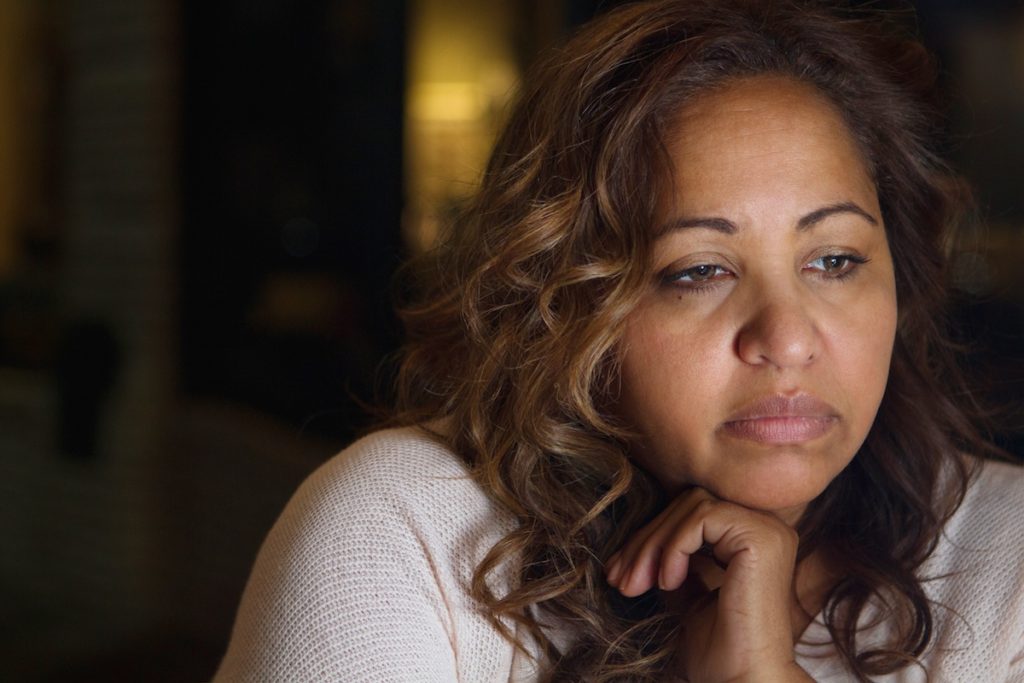Lorelie Rozzano is a guest blogger for Vertava Health.
Having Hope When All Seems Hopeless – Addiction In the Family.
If you love someone struggling with addiction, you’re not alone. One in seven families are in the same boat. A war is happening and it’s being played out behind closed doors all across North America. The stigma around mental health and addiction is alive and well and it keeps families stuck. Shame, silence and isolation are a deadly trap for those who suffer from substance use disorder. This demoralizing illness is rarely understood or treated. It is only when families or addicted persons reach out for help that recovery can and does occur. It’s important to note, families are not at fault. They are doing the best they can with what they know. But one on one, addiction wins every time. Families give so much of themselves trying to help the sick person, they burn themselves out and become sick too. It’s natural to want to help when someone you love is dying. However, when your help is not received, appreciated, or worse yet, taken advantage of – an internal battle plays out. This battle erodes self-worth and trust. It leaves you second-guessing your every thought and decision, resulting in an emotional and psychological tug-of-war. The addicted person’s family lives under extreme stress, knowing any minute they could get the call. While going about their daily business, the thought remains… Is he or she alive? Living with trauma takes its toll and the physical effects eventually catch up to the emotional and psychological ones. Depression and hopelessness set in, which can result in complicated medical issues like heart disease or other chronic health symptoms. Although there are more resources available for substance users and their families today than ever before, many still believe addicted persons are bad, weak-willed and immoral. One woman recently told me her son had been touched by the devil and was acting demonic. I assured her the devil had nothing to do with it. Her son was not acting demonic, he was extremely sick. Addiction in the family is still one of our biggest secrets. But keeping this secret can be terminal. On the other hand, telling the wrong people can be harmful too. So what can families do? Luckily, a lot!
Maintain a routine.
Feeling depressed and hopeless saps your energy. It may be appealing to crawl into bed, pull the covers over your head and stay there. If you must, give yourself a day and wallow. But don’t let it become a habit. Set a time limit and then get up. Routine will take your mind off your troubles, which is necessary for overall good health.
Daily exercise.
Even if you have to crawl, get out there. Walking for 30 minutes each day will increase serotonin, the natural feel-good chemical in your brain. Walking lowers blood pressure and helps fight heart disease. It also boosts your metabolism and gives you energy.
Prayer and Meditation.
If you believe in God or a higher power, great. If you don’t, it might be a good time to start. It’s comforting to know you’re not alone. Call on the universe, or the stars, call on a tree, call on something that’s outside yourself. Quiet your mind. Picture something that brings you comfort. Ocean waves, starry nights, a sunset. Practice prayer. It can be as simple as thank you. Researchers find that people who pray are less vulnerable to the negative physical health effects associated with stress.
Reach out for support.
In times of struggle, it’s natural to want to pull away from your friends and family and isolate. We don’t like other people seeing our pain. However isolating only makes things worse. It’s important to find safe people to talk with. 12 step programs. Family Anonymous. Smart Recovery or family programs at rehab centers will help you. People in these programs have walked in your shoes. Let them care for you. Problems shared are more likely to be solved.
Focus on what you have, not what you lost.
When you’re feeling hopeless and down, it can seem as though life is just one big struggle and nothing will ever change or get better. But that’s not true. The world is not against you. Your life reflects your focus. Nothing more, nothing less. If you focus on the negative, it grows. If you look for the positive, it grows. You will increase your happiness by identifying negative thoughts and replacing them with positive ones.
Look for the lesson and share it with others.
Most often struggles are not random. They happen for a reason. Pain is our teacher. Ask yourself what you are meant to learn through your current circumstances. Almost always, it’s the caterpillar/butterfly scenario. If somethings hurts, you have either outgrown it or are grieving it. Either way, it’s a process. Give yourself time.
Help others.
Even if you can’t change your current situation, you can still help others. Bereaved parents find comfort in sharing stories of their lost children with other parents in similar situations. Your story will help someone who is struggling. The good news is; your happiness never rests on the shoulders of someone else. You are solely responsible for it. Take a deep breath and know you’ll be okay. Then commit. Hope is a by-product of a positive mindset, hard work, discipline, healthy boundaries and behaviors. If you have questions, or just want to talk, Vertava Health has a team of professionals who will take your call 24/7. Because the only thing worse than one person struggling with addiction, is two. If you or someone you know needs help, please call this confidential support line for assistance. 844-470-0410.


